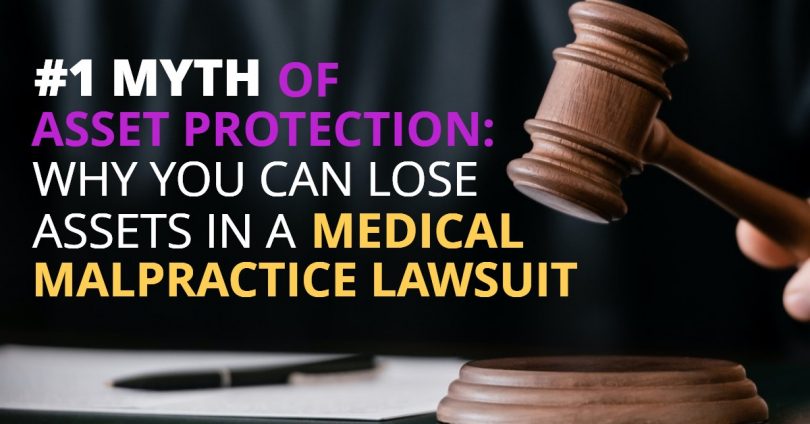The thinking of many physicians around the country, and unfortunately their advisors as well, is that there is little to any risk of a physician losing their personal assets in a malpractice claim, especially if there is $1-3 million malpractice insurance coverage.
There are a number of key issues in this analysis to review. We will take each one individually:
- Finding proper data is difficult
We like to see data before making judgments or forming opinions. However in this area, tracking how many physicians lose personal assets in malpractice actions is very difficult, if not impossible to obtain. That is because the legal system publishes filed cases and judgments rendered, but they do not publish the collections of those judgments.
There are no reporters that publish what happens once a judgment is rendered. Did the plaintiff, with a judgment in excess of coverage limits, simply settle for the amount of the medical malpractice insurance? Did the plaintiff and his attorney pursue the personal assets of the physician and his family to satisfy any excess judgments? These are questions for which there are no answers in the published materials.
Every week in the malpractice reporters we review, there are dozens of malpractice actions decided in the states where we practice. Most decisions are for the physician defendant, and there are some are small judgments for the plaintiff, but every week there are very large judgments for the plaintiff. This may be the same in your location as well. Nonetheless, we can only hypothesize about what will occur once these very large judgments are rendered. It seems that many physicians and their advisors simply assume that their plaintiffs in these cases will walk away from very large judgments and simple settle for the malpractice insurance coverage. Let’s look at a couple of reasons why this may not be so.
GOT QUESTIONS… JUST CLICK HERE!- Payments, Not Evictions
A common theme in speaking to physicians and their advisors around the country on this topic seems to be that “I have never personally heard of anyone losing their home to a lawsuit,” and therefore the conclusion is that it doesn’t happen. However, if one understands the goal of litigation and the plaintiffs, this certainly isn’t surprising. What does occur instead of eviction is that the plaintiff with the judgment will file a lien on real estate, levy bank accounts, and essentially put levies or liens on any assets of the physicians to the amount of the judgment owed to them. The goal is not to kick the physician out of their home, but make the doctor take a loan against the home to pay off the excess judgment. And this, we can assure you, happens with regularity.
- The Legal Obligation of the Plaintiff Attorney: Get the Cash
There seems to be an underlying assumption by attorneys who advise doctors that asset protection isn’t important, and that plaintiffs and their attorneys will not go after physicians’ personal assets because it is “distasteful” or for some other reason. But put yourself in the shoes of the plaintiff and the attorney. The plaintiff’s attorney has a professional and ethical obligation to represent his or her client with their best interest to the fullest extent of the law. For example, if an attorney representing a client with a $4 million judgment and only $2 million was paid by insurance, and the attorney knew that the defendant had millions of dollars of assets that were unprotected and that the attorney could attack in order to get the client paid in full, that attorney would have a professional obligation to do this. In fact, if he didn’t pursue those assets, he would be liable for malpractice to the client, and rightfully so.
When you combine the misconception of physicians that plaintiffs and attorneys won’t go after their assets because of some kind of ethical consideration with the fact that there are, in fact, ethical rules requiring an attorney to go after such assets, you can understand why the advice “you don’t need asset protection” is so off-base.
Article reference:
www.practicalneurology.com






